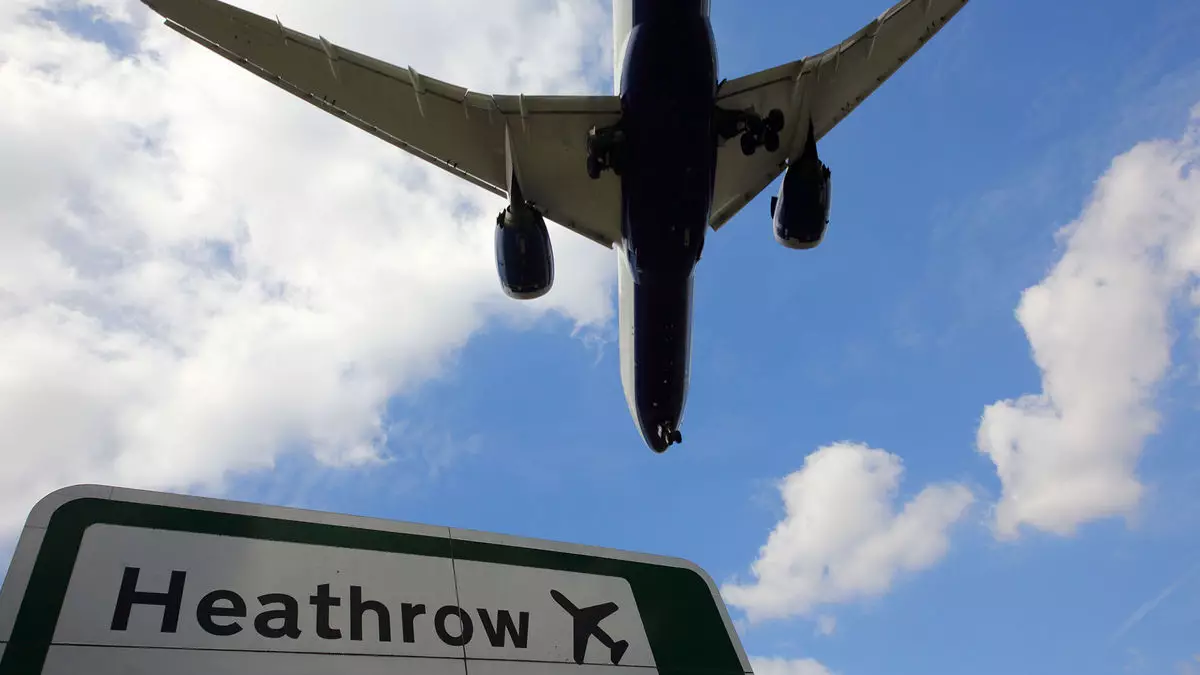On a seemingly routine Friday, London Heathrow Airport—Europe’s major air travel hub—was forced to shut down operations due to a devastating fire and subsequent power outage. This significant interruption not only grounded flights but also sent shockwaves through the global travel industry. In a statement from the airport, it was clarified that operations would resume, albeit on a reduced scale. The focus would be on repatriation and the careful management of aircraft that had been displaced. Such incidents raise questions about preparedness and how immediate response protocols can impact travelers and airlines alike.
Heathrow’s centrality in global travel cannot be overstated; it is not only the largest airport in Europe but also a critical juncture for transcontinental travel. The closure left over 669 inbound flights in limbo, affecting countless passengers and disrupting pre-planned itineraries. The extensive reach of this incident highlights a sobering reality: an airport’s operational distress can have reverberating impacts across continents.
The Struggles of British Airways
Among all the airlines operating out of Heathrow, British Airways felt the brunt of the disruption most acutely, with a staggering number of 670 planned departures and arrivals slated for that day. In a poignant video message, BA’s chief executive Sean Doyle expressed regret and solicited patience from travelers while the airline worked to recover. The gravity of his apology resonates with the vulnerability inherent in air travel; one unforeseen event can cascade into a logistical nightmare for airlines and passengers alike.
Doyle’s acknowledgment of the situation’s complexity underscores a critical point: it’s not simply about getting flights back in the air, but also about managing a tumultuous web of logistics, from repositioning aircraft to rescheduling flight crews. This incident shines a light on the operational intricacies involved in running an airline, where a single event can derail countless plans.
Other Airlines: Adapting and Overcoming
While British Airways grappled with extensive disruptions, other carriers managed to pivot with relative speed. American Airlines, for instance, suggested they would resume operations promptly, demonstrating an agile response in contrast to BA’s more strained position. Meanwhile, Virgin Atlantic expected to operate near-full service by Saturday, although it had to make adjustments, including the cancellation of one flight.
The ability of airlines such as Delta to reconfigure their operations indicates that while crises can bring havoc, they also reveal the resilience of the air travel industry. Each airline offered differing levels of service recovery, and their strategic decisions during disruption reveal varying levels of preparedness and operational fluidity.
The Bigger Picture: Lessons from Airport Disruptions
These events beckon an inquiry into the resiliency of global travel infrastructure. When an airport of Heathrow’s magnitude faces closure, it not only inconveniences travelers but also exposes the fragility of global connections. This situation is emblematic of a broader challenge: how airports and airlines can fortify themselves against unexpected events.
One significant takeaway from this incident is the importance of agility in the face of unforeseen crises. The way an airline navigates disruption can significantly influence customer loyalty and brand reputation. In a digital age where news travels instantly, the narrative surrounding airline responses can shape public perception long after the incident has been resolved.
Furthermore, the incident emphasizes the importance of communication in crises. Airlines that provide timely and accurate updates tend to foster trust with their customers, which becomes even more pivotal during disruption.
In evaluating the fallout from Heathrow’s recent ordeal, it’s clear that lessons extend far beyond immediate operational recovery. The interconnected nature of global air travel mandates that all stakeholders adopt a proactive approach to crisis management, ensuring that when the next unforeseen event arises, they can respond not just adequately, but impressively.


Leave a Reply